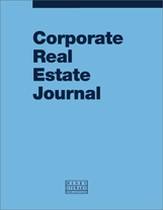Developing the return on workplace investment (ROWI) tool
Abstract
Facilities managers and the wider corporate real estate (CRE) community have increasingly become focused on cost reduction, with organisations typically viewing property as a cost burden rather than an investment. Consequently, it remains rare for organisations to include performance benefits in financial investment appraisals of workplace projects. A change in narrative is required to one where value can be demonstrated rather than simply costs reduced. Previous attempts have been made to quantify workplace performance, but a tangible tool to assist in recommending major decisions regarding changes to the workplace has eluded discovery. Therefore, the authors joined forces with the Institute of Workplace and Facilities Management (IWFM) to create the Return on Workplace Investment (ROWI) tool. The ROWI tool is a ready reckoner for calculating the impact of workplace projects (including planning, design or operation) on people performance. It can be used as part of a cost-benefit analysis to help professionals build a business case which accounts for positive factors other than cost alone. The initial step to developing the ROWI tool was to conduct an extensive literature review to determine the performance metrics that could be used to calculate a return on workplace investment. Some 105 unique and robust literature sources, with a total of 194 individual assessments of performance, were selected. Five dominant and recurring performance metrics were identified, along with nine recurring broad workplace design elements affecting task performance. Previously, there was little confidence in productivity research due to the range in performance data that various studies produce. A unique aspect of the ROWI tool, however, is that the performance data for each study was weighted to make it more relevant to real office work. The corresponding, more realistic, potential impact of workplace design on each of the performance metrics was calculated using the weighted results from all the research studies.
The full article is available to subscribers to the journal.
Author's Biography
Nigel Oseland is an environmental psychologist, workplace strategist, researcher, international speaker and published author with 11 years’ research and 21 years’ consulting experience. He advises occupiers on how to redefine their workstyles to provide workplaces that enhance individual and organisational performance. Nigel specialises in strategic briefing to create workspaces that improve collaboration, creativity and concentration while meeting psychological needs. To support his advice on workplace design, Nigel conducts independent research on key topics relevant to the workplace community, including psychoacoustics, environmental conditions, personality and personal preferences, interaction and collaboration and workplace loneliness.
Matthew Tucker is a reader in workplace and facilities management at Liverpool Business School, Liverpool John Moores University. He is an acclaimed author, publishing papers in internationally recognised journals, books and reports, and is currently the associate editor for Facilities (Emerald Publications). International roles include being an independent expert for the BSI Facilities Management Technical Committee (FMW/1) and past research chair for the European Facilities Management Network (EuroFM). Matthew is a Fulbright Scholar, winning the first-ever RICS-Fulbright award, developing crucial research on customer performance measurement in FM. He is a certified member of the Institute of Workplace and Facilities Management (CIWFM), a member of the Royal Institution of Chartered Surveyors (MRICS) and a Chartered Facilities Management Surveyor.
Hannah Wilson is a senior lecturer in research methods at Liverpool Business School, Liverpool John Moores University. Hannah undertook her degree in applied psychology and then went on to complete her PhD investigating the impact of learning environments in 2017. There are three strands to her expertise, workplace strategy, pedagogy and work psychology, which are fundamentally related to adaptations that can be made to improve individuals’ experiences and health within the work environment. Some of her current projects include examining productive workplaces, coping strategies of project managers for dealing with difficult situations, and teaching and learning on DBA programmes. She also has an expertise in research methods teaching and experience in conducting research utilising both qualitative and quantitative methodologies. Hannah would welcome connections with those with overlapping interests, from both academia and industry.
